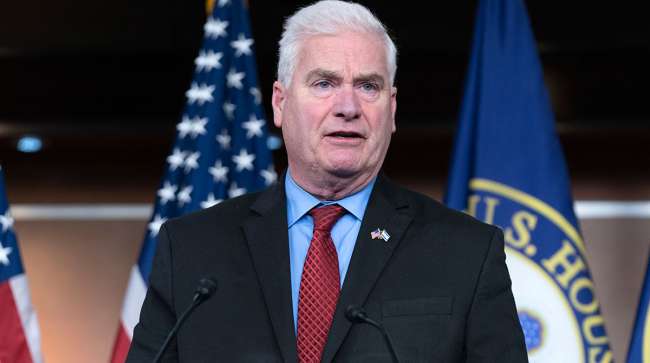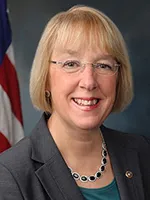Senior Reporter
Short-Term Funding Bills Unlikely, Senior Republican Says

[Stay on top of transportation news: Get TTNews in your inbox.]
As Congress faces a government funding deadline March 1, House Republicans are unlikely to be asked to consider another short-term fix to avert a shutdown.
Rep. Tom Emmer (R-Minn.), the chamber’s majority whip, indicated Republican leaders are pursuing long-term strategies for approving fiscal 2024 measures. Those strategies would mark a departure from Congress’ recent reliance on short-term measures to fund federal agencies.
The GOP-led House and Democrat-controlled Senate are scheduled to resume their legislative business in Washington the week of Feb. 26. Both chambers recessed for the Presidents Day holiday.
Funding authority for the U.S. Department of Transportation and other nondefense agencies expires March 1. Funding authority for defense-related agencies expires March 8.
Once again, we are just 10 DAYS away from a potential government shutdown that would devastate Virginia's economy and workforce.
This is unacceptable.@SpeakerJohnson must bring forth bills that will pass both chambers and get to the President’s desk.
More from @WTOP: pic.twitter.com/3p1igLYhbF — Rep. Abigail Spanberger (@RepSpanberger) February 20, 2024
“When we come back, the key is going to be what are the packages that are put on the floor; what’s going to drive the votes that will get them across the line. But we should be there before the first deadline of March 1 and then, of course, we got the second deadline, which is March 8,” Emmer told reporters Feb. 15. In his role as majority whip, Emmer is tasked with ensuring there are requisite votes for passing legislation in the chamber.
“You’re not going to get another [short-term] continuing resolution out of our conference in Congress. The last one was difficult,” he said. “That was done because our speaker recognized that there just wasn’t enough physical time to process all the bills.”
House Democrats governing in the minority continue to urge the chamber’s Republican leadership to advance fiscal 2024 legislation.
“Once again, we are coming dangerously close to a potential government shutdown. March 1 and March 8 — those are the deadlines that we have to fund the government, and Congress must do our job. It is vitally important that Speaker [Mike] Johnson bring forth bipartisan bills that can pass the U.S. House, pass the U.S. Senate, and do so in time to avoid a reckless government shutdown,” Rep. Abigail Spanberger (D-Va.) said Feb. 16. She is a member of the House Agriculture Committee.

Murray
“For too many months,” the congresswoman continued, “we have been coming right up to the precipice of disaster and avoiding it with a continuing resolution. It needs to stop. We need to fund the government. And the speaker needs to bring forth bills that will pass both chambers and get to the president’s desk.”
On the Senate side, Appropriations Committee Chairwoman Patty Murray (D-Wash.) sounded the alarm about a partial shutdown’s potential impact.
“A shutdown tomorrow would force staff administering our nation’s veterans and nutrition assistance programs — and so much else — to either work without pay or stop working altogether,” the senator said last month. “The chair of the National Transportation Safety Board said a shutdown this week would force the board to hit pause on investigations it is conducting — including the recent incident when a door plug blew out midflight.”
Want more news? Listen to today's daily briefing above or go here for more info
On Jan. 18, the House and Senate approved a continuing funding resolution that averted a partial federal shutdown. Since the beginning of the current fiscal year in October, federal agencies have operated via congressional adoption of short-term funding legislation.
Specific to funding for transportation programs, the Senate last year advanced a $98.9 billion fiscal 2024 appropriations bill for USDOT and the Department of Housing and Urban Development. The Senate legislation would dedicate $20.2 billion for the Federal Aviation Administration, $16.8 billion for the Federal Transit Administration and $3.4 billion for the Federal Railroad Administration.
Meanwhile, House Republicans have not advanced their version of the fiscal 2024 transportation bill. The Senate-passed and House appropriations bills would each provide nearly $1 billion for the Federal Motor Carrier Safety Administration.




